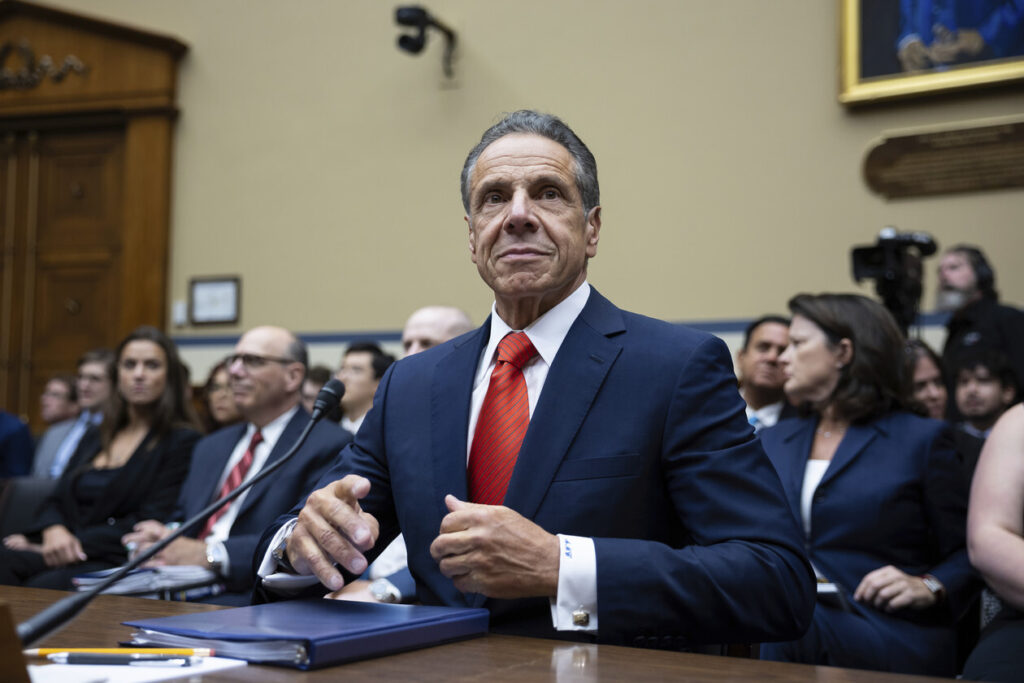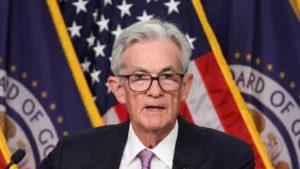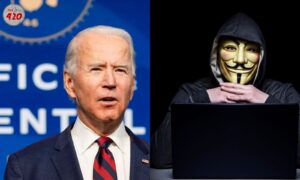
A House panel is currently considering whether to refer former New York Governor Andrew Cuomo for criminal charges related to alleged abuses of power during his tenure. These allegations, which have reignited public interest in Cuomo’s time in office, suggest potential misuse of authority, as detailed through multiple investigations and whistleblower reports. If criminal referrals are made, it could mark a major legal and political reckoning for the former governor, whose leadership faced significant scrutiny on various fronts, including his handling of the COVID-19 pandemic and alleged workplace misconduct.
Background of Allegations Against Andrew Cuomo
Andrew Cuomo, who served as governor of New York from 2011 to 2021, stepped down in August 2021 following mounting allegations of sexual harassment and mishandling of nursing home COVID-19 cases. His resignation followed an investigation by the New York Attorney General’s office, which found credible evidence that Cuomo had sexually harassed multiple women, violating both federal and state laws. In addition, he faced separate allegations related to the handling of nursing home COVID-19 death data, with critics accusing his administration of underreporting fatalities to protect his public image.
The former governor has consistently denied these allegations, claiming that they were politically motivated and part of a larger smear campaign. Nonetheless, his resignation marked a significant turning point in New York politics and set the stage for continued legal inquiries into his conduct.
Why a House Panel is Involved in the Cuomo Case
The House panel’s involvement in Cuomo’s case is notable, as it indicates that the federal government is taking a closer look at potential misconduct that may extend beyond state-level violations. Congressional committees often investigate state officials when issues of national concern, such as public health and abuse of public office, are implicated. In Cuomo’s case, allegations of data manipulation during the COVID-19 crisis and accusations of retaliatory practices have raised red flags about abuse of power and transparency.
The House panel is also examining whether Cuomo’s actions violated federal law, as some of his alleged conduct may fall under statutes governing misuse of public office and violations of civil rights. The findings of this investigation could ultimately lead to federal charges, depending on the evidence gathered and the panel’s recommendations.
Potential Criminal Charges: What’s on the Table?
Several types of criminal charges could emerge from the panel’s investigation into Andrew Cuomo’s tenure, depending on the severity of the alleged abuses. Below are some of the primary charges that the House panel may consider referring:
- Obstruction of Justice
If evidence shows that Cuomo or his administration actively obstructed investigations into nursing home deaths or other alleged misconduct, this could constitute obstruction of justice. This charge could be particularly relevant if the panel finds proof that Cuomo or his associates interfered with data reporting or misled federal health officials. - Civil Rights Violations
Allegations of sexual harassment and workplace intimidation may also lead to civil rights-related charges. Federal law protects employees from sexual harassment and hostile work environments, and any proven retaliation against whistleblowers could constitute a civil rights violation. - Data Manipulation and Misrepresentation
Cuomo’s administration faced scrutiny over allegedly altering nursing home death statistics to minimize political backlash. If the House panel finds that Cuomo knowingly misrepresented data submitted to federal agencies, it could lead to charges related to falsifying records or making false statements. - Misuse of Public Resources
Additionally, there are allegations that Cuomo used state resources for personal gain, including reports that state employees were involved in writing his memoir, which he later profited from. Misappropriation of public resources could lead to charges if the House panel deems this conduct unlawful.
Cuomo’s Defense: A Battle Over Political Motives
Cuomo’s legal team has argued that the investigations and allegations against him are politically motivated, pointing to rivals and detractors as instigators of a “witch hunt.” Throughout his career, Cuomo maintained a reputation as a hard-nosed leader who did not shy away from conflict, and his legal team asserts that political enemies are now seeking to exploit his vulnerabilities post-resignation.
Cuomo has also called the nursing home allegations “a baseless conspiracy theory” and has defended his administration’s actions as necessary responses to the unprecedented COVID-19 crisis. Regarding the sexual harassment claims, he has admitted to making comments that may have been perceived as inappropriate but denies any malicious intent, emphasizing that his words were misinterpreted.
Public and Political Reactions to the Cuomo Investigation
Public reactions to Cuomo’s potential criminal charges have been mixed, reflecting a polarized view of his legacy. Some see Cuomo as a leader who provided stability during New York’s pandemic crisis, while others view him as an authoritative figure who betrayed the public’s trust. The House panel’s consideration of criminal referrals is likely to intensify these divides, drawing further scrutiny to his actions and leadership style.
Among lawmakers, reactions have also varied. Some Democratic leaders who had once supported Cuomo have distanced themselves following the allegations, underscoring a broader shift within the party toward accountability and transparency. Meanwhile, Republican leaders have been vocal in calling for accountability, framing the investigations as a necessary check on a high-ranking official who allegedly violated public trust.
What Happens if the House Panel Recommends Charges?
If the House panel does refer Andrew Cuomo for criminal charges, it would mark a significant development in the case, potentially leading to federal prosecution. Referrals for criminal charges from congressional panels do not guarantee prosecution, as the Department of Justice would still need to determine the viability of the charges. However, such a referral would place additional pressure on the Justice Department to act, especially in a high-profile case that has already attracted public attention.
Following a criminal referral, the Justice Department could launch its own investigation or collaborate with the New York State Attorney General’s office to assess existing evidence. The House panel’s findings would be a crucial piece of this puzzle, especially if they include documented instances of alleged misconduct or data manipulation.
Impact on Political and Public Accountability
The outcome of this case could have broader implications for political accountability, particularly for high-ranking state officials. If Cuomo faces criminal charges, it may set a precedent for prosecuting state leaders accused of abusing their power. Additionally, the case could influence public expectations of transparency and accountability, especially regarding how public officials handle sensitive data and treat employees.
Cuomo’s case could also impact future elections, particularly in states like New York where the former governor’s allies and adversaries remain active in politics. A criminal referral and potential prosecution could reshape public perceptions of political figures who have long dominated the state’s political landscape.
Conclusion
The House panel’s investigation into Andrew Cuomo’s actions as governor represents a pivotal moment for accountability in American politics. As the panel considers referring Andrew Cuomo for criminal charges, the case highlights the serious consequences of alleged abuse of power by public officials. Regardless of the outcome, the investigation underscores the need for transparency, accountability, and public trust in government leaders.
The ramifications of this investigation extend beyond Cuomo, potentially reshaping the standards of conduct expected from public officials across the United States. Whether or not charges are ultimately filed, the case serves as a reminder of the high stakes in public office and the lasting impact of a leader’s actions on both their state and the nation.
image credit – Francis Chung/POLITICO


